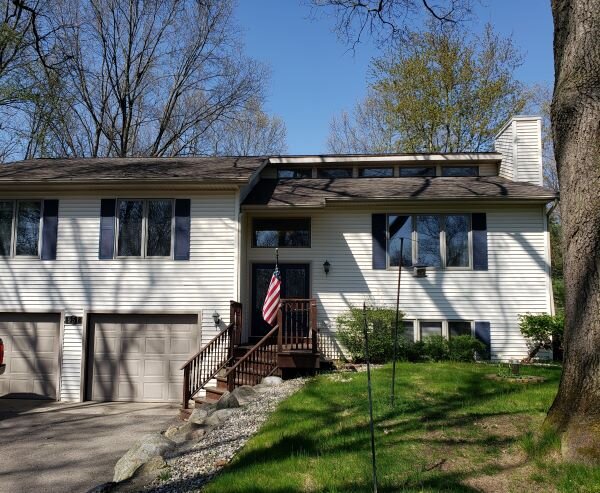
Can A House In Probate Be Sold In Michigan?
Dealing with a loved one’s estate can be overwhelming, especially when it comes to selling property. You might wonder if you can sell a house in probate in Michigan. The answer is yes, but there are specific rules and procedures you must follow.
Probate is the legal process of administering a deceased person’s estate. It involves validating the will, paying debts, and distributing assets to beneficiaries. When a house is part of the estate, you may need to navigate the probate process before selling it.
Let’s dig a little further as we uncover how to sell your inherited house during probate in Michigan.
How Does Probate Work In Michigan?
In Michigan, probate is a court-supervised process that ensures the proper distribution of a deceased person’s assets. You’ll need to understand the basic steps involved in probate before selling a house during probate. Here’s an overview of the probate process in Michigan:
- Filing the petition: You must file a petition with the probate court to open the estate and appoint a personal representative.
- Inventory of assets: The personal representative must create a detailed list of all the deceased person’s assets, including real estate.
- Notifying creditors: Creditors must be informed of the death and given a chance to file claims against the estate.
- Paying debts and taxes: The personal representative is responsible for settling all outstanding debts and taxes from the estate assets.
- Distributing remaining assets: After debts are paid, the remaining assets, including property, are distributed according to the will or state law.
Why Is Probate Important In Property Distribution?
Probate plays a crucial role in property distribution for several reasons. It ensures that the deceased person’s wishes are carried out and protects the rights of heirs and creditors. Here are some key reasons why probate is important:
The Decedent Had Property That Didn’t Automatically Transfer Upon Death
Some assets, like houses, don’t automatically transfer to beneficiaries when someone dies. Probate is necessary to legally transfer ownership of your inherited house. You’ll need court approval to sell a house that’s part of the probate estate.
Probate ensures that the deceased person’s debts are paid before assets are distributed. If there are outstanding debts, the house may need to be sold to settle them. The probate process protects creditors’ rights and prevents disputes.
Disputes Over Who Has the Right to Inherit the Property
When there is no clear will or multiple claims to property, probate helps resolve conflicts. The court oversees the process to ensure a fair distribution of assets, which can prevent lengthy legal battles among family members over inheritance rights.
Michigan Probate Laws You Should Know About
Understanding Michigan’s probate laws is crucial when selling a house in probate. Here are some important laws to keep in mind:
- Small estate exemption: Estates valued under $27,000 may qualify for simplified probate procedures, making the process faster and easier.
- Personal representative authority: The court-appointed personal representative has the legal right to sell property in the estate.
- Notice requirements: You must notify all interested parties, including heirs and creditors, before selling probate property.
- Court approval: In many cases, you’ll need court approval before finalizing the sale of a probate property.
- Inventory and accounting: The personal representative must provide a detailed inventory of assets and account for all financial transactions.
What Is The Difference Between Testate And Intestate Probate?
The probate process can differ depending on whether the deceased left a valid will. Understanding these differences is important when selling property:
Testate probate occurs when the deceased person leaves a valid will. The will typically names an executor to manage the estate. You’ll follow the will’s instructions for distributing assets, including selling property. Court involvement may be minimal if the will is clear.
Intestate probate occurs when there is no valid will. Michigan law determines how assets are distributed. The court appoints an administrator to manage the estate. Selling property may require more court oversight and approval in intestate cases.
How Do I Sell A Property During Probate?
Selling a house during probate involves several steps. Here’s a general guide to help you navigate the process:
- Obtain court approval: You’ll need permission from the probate court to list the property for sale.
- Get a property appraisal: Have the house professionally appraised to determine its fair market value.
- List the property: Work with a real estate agent experienced in probate sales to market the house.
- Accept an offer: Once you receive an offer, present it to the court for approval.
- Close the sale: After court approval, proceed with closing the sale and transferring ownership to the buyer.
Michigan Legal Requirements for a House Sale During Probate
When selling a house in probate in Michigan, you must adhere to specific legal requirements. The court oversees the process to ensure fairness and protect all parties involved. You’ll need to obtain court approval before listing the property and accepting an offer.
Michigan law requires you to notify all interested parties, including heirs and creditors, about the sale and provide the court with a detailed accounting of the sale proceeds. Following these legal requirements helps ensure a smooth and valid property transfer.
How Do I Close the Sale of a House in Probate?
Closing a probate property sale involves several important steps. Here’s what you need to know:
Once you have court approval and a buyer, you can proceed with closing. You’ll need to sign legal documents transferring ownership. The buyer will provide payment, usually in the form of a cashier’s check or wire transfer.
Legal and Procedural Requirements
Follow all court-ordered procedures during the closing process. You may need to file additional paperwork with the probate court. Ensure all legal requirements are met to avoid complications or delays in the sale.
After the sale, distribute the proceeds according to the court’s instructions. Pay off any remaining debts or taxes. The remaining funds will be distributed to heirs or beneficiaries as determined by the will or state law.
Challenges When Selling a House During Probate
Selling a house in probate can present unique challenges. Here are some common issues you might face:
Disputes Among Heirs and Creditors
Disagreements among family members or creditors can complicate the sale process. Heirs may contest the will or object to the sale. Creditors might claim they’re owed money from the estate.
Open communication is key to resolving disputes. Consider mediation to reach agreements among interested parties. If necessary, seek court intervention to settle disagreements and move forward with the sale.
Navigating probate sales can be complex. Consider hiring an attorney experienced in probate real estate. They can guide you through legal requirements and help resolve any issues that arise during the sale.
What Is the Best Way to Sell a House in Probate?
A cash home sale can be an excellent option when selling a house in probate. This method involves selling the property directly to a buyer who can pay in cash, often a real estate investor. Cash home sales can simplify the probate process and offer several advantages.
With a cash home sale, you can avoid many of the complexities of traditional real estate transactions. There’s no need for bank financing, which can speed up the sale process significantly. This can be particularly beneficial in probate situations where time is often of the essence.
Cash buyers are often willing to purchase properties “as-is,” eliminating the need for repairs or renovations. This can save time and money, allowing for a quicker distribution of the estate assets. Additionally, cash sales typically involve fewer contingencies, reducing the risk of the deal falling through.
Get a Cash Offer for Your Inherited House in Michigan
Probate can be a challenging time when selling your inherited house in Michigan. Ryan Buys Houses simplifies the process with a cash offer. You can sell your house and close the deal in as little as a few weeks to get the cash you need to close your probate case.
Fill out our online form or call (269) 775-4095 to get a cash offer today. Sell your house fast in Kalamazoo, Michigan.
